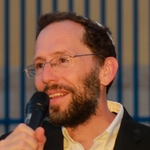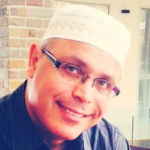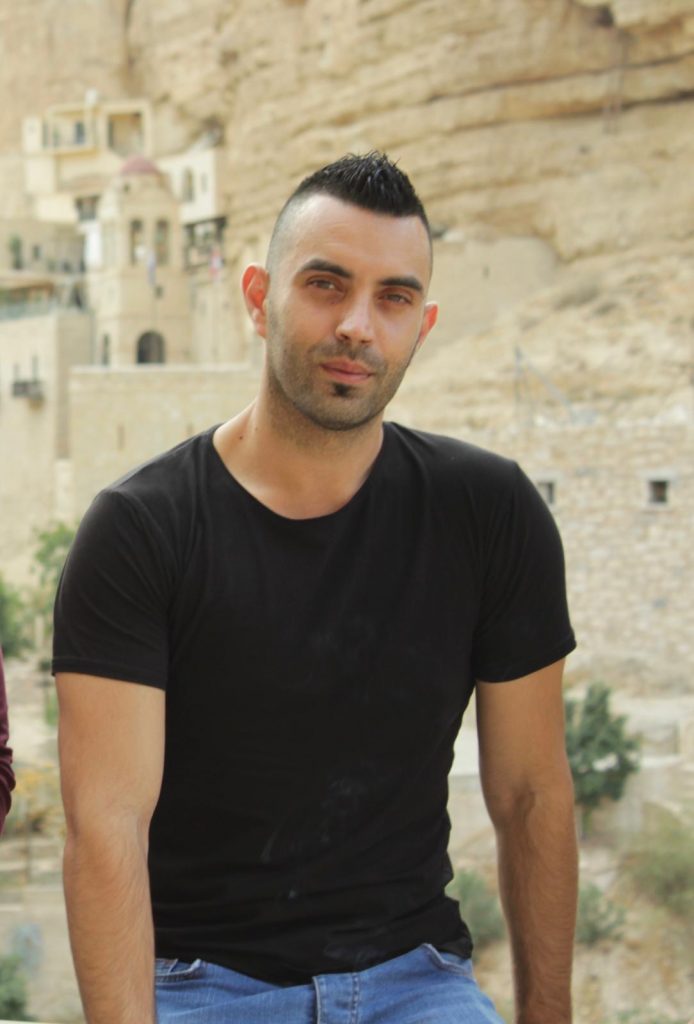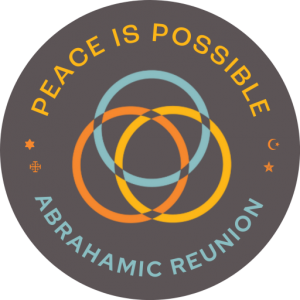Cross-Border Youth Meeting Via Zoom
October 2020
by Mohamad Jamous
Our aim is to increase understanding and peace in the Holy Land so, as we do every month, Palestinian and Israeli youth, and leaders from different religions met for a beautifully organized dialogue to learn about our different religions and cultures. Thirty-five Palestinians and Israelis participated.
Our meeting today talked about the story of our master Moses, peace be upon him, in the Torah and in the Qur’an.
It began at 7:00 PM under the supervision of Sheikh Ghassan Manasra and Rabbi Yaakov Nagen.
Sheikh Manasra welcomed the participants, and then Abd al-Salam Manasra and I delivered a welcome speech and thanked all those who joined us.
Moses in the Torah


Everyone listened closely while Rabbi Nagin shared the Story of Moses from the Torah.
The descendants of Jacob had lived in Egypt for more than 450 years, during which time they had grown into a nation: The nation of Israel. The Egyptians began to see them as a threat and tightened their control on them, forcing them to work as slaves. Eventually, in an attempt to reduce their numbers, newborn Israelite babies were drowned in the River Nile.
The Torah says that the Israelites asked God for help and He sent them a leader: Moses. In order to escape death, Moses’ mother placed the infant Moses in a basket and set him adrift on the River Nile. She left his fate up to God’s will. Moses was rescued by the Pharaoh’s daughter and brought up in the palace as a royal prince. As, an adult, Moses reacted against the unfair treatment of his own people and killed an Egyptian guard. Moses was then forced to flee from the wrath of the Pharaoh, so he escaped to the land of Midian where he married Zipporah, the daughter of the Priest of Midian, and where he worked as a shepherd for forty years.
One day, in the desert, Moses heard the voice of God speaking to him through a flaming bush that did not burn. God asked Moses to lead his people out of slavery in Egypt to the Promised Land. At first, Moses was reluctant, thinking that the Israelites would not believe that he had heard the word of God.
But God gave Moses special powers, and Moses returned to Egypt to confront Pharaoh, and demand freedom for his people.
At first, the Pharaoh refused to let the Israelites leave, and God unleashed 10 plagues on the Egyptians. It was the tenth plague – the killing the firstborn Egyptian son- which eventually persuaded the Pharaoh to let them go. These events are the origins of the Jewish festival of Passover.
After the Pharaoh released the Israelites from slavery, he changed his mind and sent his army to recapture them. Although six hundred chariots pursued the Israelites, the waters of the Red Sea parted; allowing the Israelites to walk through, then the waters returned and swallowed the Pharaoh’s army. After travelling through the desert for nearly three months, the Israelites camped before Mount Sinai. There, God appeared to Moses and made a covenant with him. Declaring that the Israelites must listen to God and obey His laws. These laws, which set out the basic principles that would govern the Israelite’s lives, were the Ten Commandments, given to Moses on two stone tablets.
Moses in the Qu’ran

Credit: Rashid al-Din – Jami' al-tawarikh., Public Domain

After Rabbi Nagin recounted the story of Moses according to the Torah, Sheikh Manasra told the story according to the Holy Quran:
According to Islamic literature, around the time of Moses’s birth, the Pharaoh had a dream in which he saw fire coming from the city of Jerusalem, which burned everything in his kingdom except the land of the Israelites. When the Pharaoh was informed by his dream interpreters that an Israeli child would grow up to overthrow him, he ordered the killing of all newborn Israelite males to prevent the prediction from occurring.
Economic experts in the Pharaoh’s court advised him that killing the Israeli male infants would result in loss of manpower. So, they suggested that Israelite infants only be killed only every other year. Therefore, Aaron, Moses’s brother was born in a year when infants were spared, while Moses was born in a year in which infants were being killed. When Moses and his mother were in danger of being caught, God inspired her to put him in a basket, and set him adrift on the Nile. She instructed Moses’s sister to follow the basket, and report back to her. As her daughter followed the basket along the riverbank, she realized Moses had been discovered by the Pharaoh’s wife, Asiya, who convinced the Pharaoh to adopt him. When Asiya ordered wet nurses for Moses, he refused to be breastfed, so Moses’s sister brought forth his own mother to act as a wet nurse for Moses. In this way Moses was brought up in the Pharaoh’s palace, as his son, but because he was nursed by his own mother, Moses came to know his true ancestry. Later, when he was an adult, Moses witnessed a fight between an Israelite and his Egyptian overseer. When the Israelite asked Moses for help, Moses intervened and accidently killed the Egyptian. Moses fled to Median where he married the daughter of the prophet Jethro and worked for him as a shepherd for ten years.
After Moses had fulfilled his term of working for Jethro, he was wandering with his family in the desert, when God Almighty addressed him and commanded him to go to Pharaoh and his people and call on them to worship God and leave their false beliefs and polytheism. But, when Moses went to Egypt and confronted Pharaoh, he insisted on his own beliefs and accused Moses and Aaron of using sorcery and witchcraft to mislead the Egyptians and keep them away from their faith and worship. In response, God overwhelmed the Pharaoh’s people with drought and scarcity of fruits, so that they might believe. “We let loose upon them floods, and plagues of locusts, and lice, and frogs, and water turning into blood – distinct signs, all: but they gloried in their arrogance, for they were people lost.” And as each plague struck them, they would cry: “Oh, Moses, pray to your Sustainer for us, and if you remove this plague from us, we will truly believe in you, and will let the children of Israel go with you!” But whenever a plague was removed from them, and they were given time to make good their promise, they would break their word.
Until finally the when the Pharaoh released the Israelites, but sent his army to pursue them, Moses and his people were able to cross the sea after he struck it with his stick, but the sea closed over the pharaoh’s army and they were drowned.
Youth Perspectives

The clock started approached eight in the evening, and we had heard from Sheikh Mansara and Rabbi Nagen, so the participants opened the door for a dialogue and discussion regarding the stories.
* Sajida, a Palestinian participant from Jerusalem, spoke about the similarities in most religious stories and said this should teach us that the heavenly religions are religions of tolerance, love and closeness to God Almighty.
* Abeer def-Allah, a Palestinian participant from the city of Ramallah, in the West Bank, said that the divine religions urge tolerance and brotherhood among human beings because tolerance is a moral value that helps humans to live in safety, and away from forces that may disturb his life, and destroy him psychologically or physically.
* Yoav, an Israeli participant, shared that the purpose of the great religions, is to discuss the importance, and necessity, of searching for common values among human beings, to preserve their survival, and to recognize the infallibility and inviolability of the human soul.
At 8:30, and after the dialogue session ended, Sheikh Manasra and Rabbi Nagen thanked all those who participated today, and expressed hope to meet again next month for a new story of the prophets.

Written by Mohamad Jamous
Abrahamic Reunion Palestinian Director

